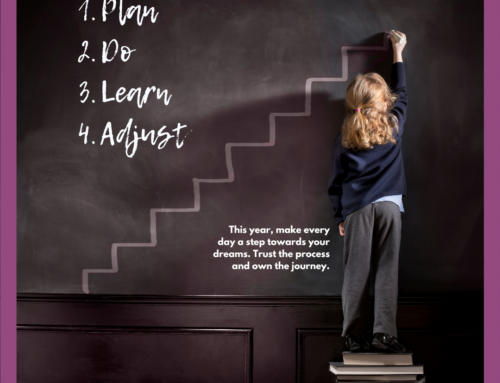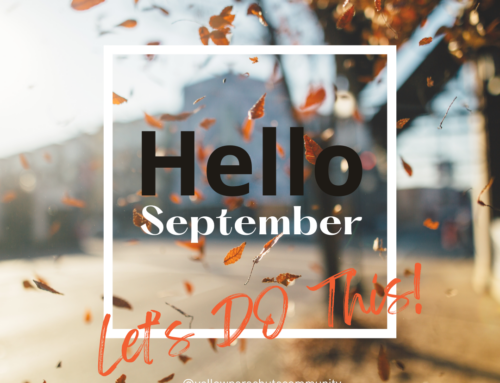Yesterday, one of my students came to our session almost in tears. She struggles with grammar, and lately, the teacher had been asking her to correct grammatical mistakes on the board in front of her peers. Failing publicly made her feel panic and shame. She was crying about grammar, but really, she was crying about her soul.
My heart breaks for that student. What was she learning about her talents and gifts in relation to her weaknesses? What labels was she receiving? And what was she learning about learning? And as an educator, I have been thinking a lot lately about how we can create the space for productive failure.
Let me explain: 2-3 times each week, I spend an hour doing “Alpha Training” at LifeTime gym with my weight-training buddies. Recently, I PR’d on my front squat. (Gold Star!) I lifted the weight once successfully, but on the second attempt my legs trembled and I knew I wasn’t going to make it back up to standing. I threw the bar forward and my body backward, just as my coach had instructed; the weight fell and bounced on the mat. And the failure felt—awesome.
Why? Because it was built into the system. The weight-training workouts are designed to build strength and stamina by pushing us lifters to our limits. We try until we fail, and then we try again. And strangely, there’s a safety and freedom in that—instead of haphazardly “doing my best,” wondering whether it’s actually my best, critiquing my efforts all the way, I just push myself until I come up against failure. And it’s the failure that tells me I’m on track. So I take a breath, and try again. And when I feel I can’t, a buddy or my trainer reminds me that I CAN.
In this context, failure is not just acceptable but necessary for growth. It’s almost absurdly simple. Yet in most contexts, we have been socialized to avoid failure at all costs. As Brené Brown writes: “Falling down, screwing up, and facing hurt often lead to bouts of second-guessing our judgment, our self-trust, and even our worthiness. I am enough can slowly turn into Am I really enough?”
As parents and educators, sometimes unconsciously, in the smallest of ways and with the best of intentions, we teach our children that failure is unacceptable. Maybe we’re so worried about their slipping math grades that we correct their homework before they turn it in. Maybe we hover a little too closely as they write that English essay, correcting grammar as they go, making gentle suggestions about content. Or lose our cool over a test that went awry before we know the full story. Or treat tutoring as punishment rather than a gift. We do it out of love—to help them achieve their best. But by not allowing our students to discover and define “their best,” then experience their own limits and mistakes as productive feedback along the way, we teach them that they are not enough. We teach them that the appearance of success “abstractly defined” is more important than the personal process of learning. And we deprive them of the most transformative moment of the learning process.
As caring parents and educators, sometimes we fear the failure of our students as if they were an extension of ourselves. But their learning has nothing to do with us. If my Alpha-coach feared my failure, and started lifting heavier and heavier barbells for me to speed up my progress, then passed the weight to me, not only would I fail to gain strength, but I would probably get injured in the process. How can we, as parents and educators, cultivate a gentle, non-attached attitude towards the failures of our students? How can we teach them that the best learning happens through struggle?
Failure is not a catastrophe, but simply a limit. And when we find our limits, we learn something about who we are and where we are and how we can move forward. With or without help. Growth happens not when we avoid failure, but when we learn how to move through the pain and vulnerability to the next attempt. As Brown writes, we need to learn to “rise from our falls, overcome our mistakes, and face hurt in a way that brings more wisdom and wholeheartedness into our lives.”
Often it’s the agenda that gets us into trouble—the deadline, the busy schedule, the test score. We don’t have time to mess up. Classroom teachers must perform the impossible–bring a whole room full of diverse learners up to speed on a predefined set of skills within a tight timeframe. That’s one of the reasons I’m passionate about individualized learning. As learning coaches, we have the luxury to focus on the long-game for each student. We can create an agenda-free space. We can take failure as useful data, and meet it with patient questions. “What did you learn? What would you try differently?”
I want to tell all of my students, all students everywhere: you are not defined by your mistakes, but by your efforts to lean into them. Or in the immortal words of Albus Dumbledore, “It is our choices, Harry, that show what we truly are, far more than our abilities.”
-Cara







